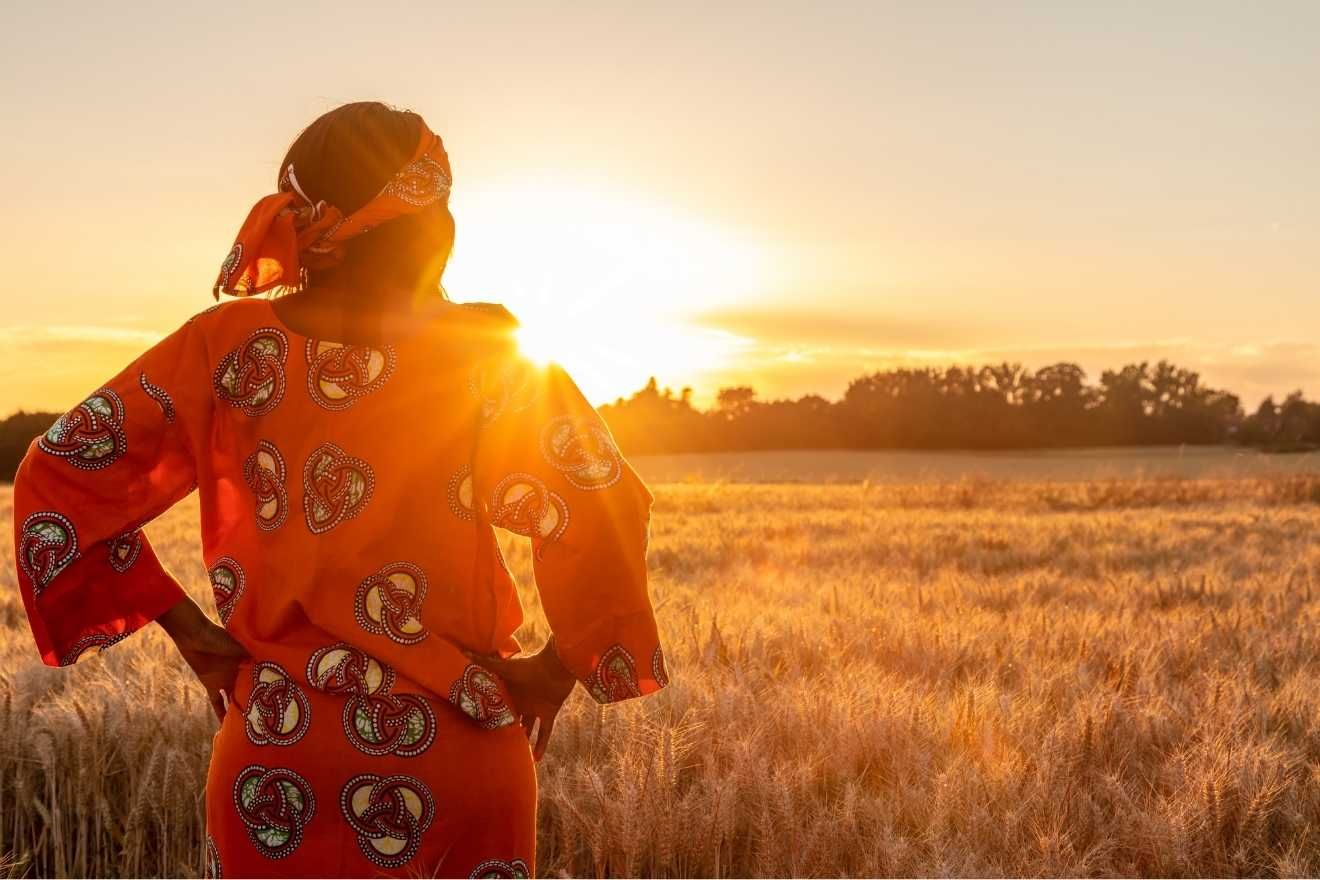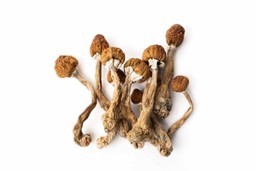While the benefits of psychedelics are being explored in Western research, we have to be aware of their cultural roots. How Can Psychedelic Medicine Include Indigenous Cultures? Let’s answer questions about inclusion in psychedelic medicine and research.
It’s exciting to watch psychedelics finally be decriminalized. It’s even more exciting to watch some medical psychedelics begin the process of commercialization. But we’ve got a lot of work to do as we blaze the trail into this new field of medicine.
This new movement has high ambitions for treating PTSD, depression, and other mental health problems. But we’re still plagued by the same problems of the wider medical community.
As leaders in the field, we at Psychedelic Support want to create reciprocity within psychedelic medicine. Without indigenous peoples, we might’ve never found these substances. Yet the broader field of medicine often doesn’t credit native peoples with their discoveries. Let’s talk about how indigenous cultures brought us plant-based medicines.
Follow your Curiosity
Sign up to receive our free psychedelic courses, 45 page eBook, and special offers delivered to your inbox.The Cultural Roots of Plant-Based Psychedelics
Natural psychedelics like psilocybin and ayahuasca have a past rooted in exploitation and appropriation. Indigenous people have been very generous with their knowledge of plant-based medicine. Yet they’ve often suffered for their generosity.
White people have often used these psychedelics as tools for self-growth and exploration. But they neglect to understand their origins. The lives of native peoples have been destroyed because of white ambition and desires. Here’s some background on cultural appropriation in plant-based medicine.
Psilocybin
Psilocybin was introduced to Western culture by a New York banker in the 50’s. On a trip to Sierra Mazteca in Mexico, he lied to a Huautla medicine woman to participate in a ritual that wasn’t available to outsiders. When he returned home, he sang psilocybin’s praises in an infamous Time Magazine publication and people flocked to Huautla.
Once word got out, the village was flooded with white tourists. Celebrities like John Lennon and Mick Jagger traveled to Mexico to experience psilocybin’s psychedelic properties.
As tourism grew, the village of Huautla was destroyed. Officials jailed the medicine woman for bringing white people to their door [1].
Her son was killed.
Her home was burned down.
And she died in poverty.
This tragic story shows us what unchecked entitlement can do to indigenous peoples – especially those who are generous with their knowledge. We have to do better.
Ayahuasca
Ayahuasca was found in Brazilian Indigenous cultures as a component in spiritual rituals. In 1951, an English botanist named Richard Spruce was the first to formally catalog ayahuasca after he watched it being used during a ceremony performed by the Tukano in Northwest Brazil.
Later, the ethnobotanist Richard Schultes learned about ayahuasca from the generous teachings of the native Amazonians. He noticed how their plant knowledge was built into their culture. From an early age, they could easily distinguish between plants that he thought were the same. The knowledge they possessed was deeper than he could grasp as an outside researcher [2].
Today, tourism around ayahuasca for the most part pays no attention to cultural teachings surrounding this plant. People flock from across the globe to participate in ayahuasca rituals. But they often fail to see how their presence can hurt both native peoples and the environment [3, 4].
Appropriation in Psychedelic Medicine
Let’s get clear on what appropriation means within psychedelic medicine.
A non-indigenous person participating in psychedelic medicine is not appropriation. Native peoples have not tried to limit access to medicinal plants – in fact, they’ve been very generous with their knowledge.
Appropriation happens when we consume without considering the larger context we’re existing in:
- When we take credit we don’t deserve.
- When we profit off of the knowledge of people who have been using psychedelic medicine for centuries.
- When we remove their culture from the experience.
Another issue lies in the fetishization and commodification of Indigenous practices surrounding psychedelic medicine. This happens when we take elements of a culture without seeing their part in the larger picture. Wearing scared indigenous headdresses at music festivals is one example of blatant and destructive appropriation. We have to acknowledge how real people are impacted by the choices we make.
Bringing awareness of appropriation within psychedelic medicine is the first step to showing people a better way. We’re hoping to establish a new paradigm for medicine within psychedelic therapy. Let’s talk about how we can build this field to include Indigenous peoples.
How Can Psychedelic Medicine Include Indigenous Cultures?
In order to respect Indigenous people in the psychedelic field, we need to engage in dialogue and reciprocity. Indigenous people should not just be “included” in advancing psychedelic medicine, they should have the opportunity to be key decision-makers.
Creating systems that include open education and communication will grow psychedelic medicine with inclusivity in mind. Here are a few ways we need to bring Indigenous cultures into Western psychedelic medicine:
Inclusion in Research and Education
Minorities are vastly underrepresented in psychedelic research trials. One review of 18 trials found that over 82% of participants were non-hispanic whites [5]. How can we claim to use evidence-based methods to treat minorities when we haven’t included them in the research process?
For the longest time, medical research was done on only white men. As a result, women and minorities received treatments that hadn’t been fully researched in their demographic. We can’t make this same mistake with psychedelic medicine today.
We can address this by promoting research inclusion in minority groups – specifically Indigenous peoples. Including a more diverse sample group allows minorities to participate and makes research stronger. More inclusive research benefits everyone.
As part of their MDMA commercialization process, the Multidisciplinary Association for Psychedelic Studies (MAPS) plans to train providers who are part of diverse communities. By intentionally including minority groups in education, we ensure that they have a voice in the evolution of psychedelic medicine.
Addressing Barriers to Access
As psychedelic medicine becomes available, our duty is to ensure equal access for everyone. Our hope is that psychedelic medicine will be covered by insurance providers or single-payors.
In Oregon, residents will be able to access psilocybin next year due to a 2021 bill. The state has made it clear that therapy won’t be funded by insurers – but they do plan to promote equitable access.
It’s possible that clients will be responsible for part or all of the duty of this payment. If that’s the case, we’ll need to make a concerted effort to make psychedelic medicine accessible to people with less socioeconomic means.
Exploring the Context of Plant-Based Medicines
Indigenous leaders need to be brought into the wider conversation of psychedelic medicine. Exploring the ways they’ve used these substances for millennia can help us maximize their effectiveness in therapy.
Including plant medicine leaders in the common discourse of psychedelic medicine can help us broaden our understanding of these substances. At the same time, plant medicine leaders can learn about research and best-practice standards from the perspective of Western medicine [6].
Several organizations already exist to empower indigenous peoples within psychedelic medicine. The Indigenous Peyote Conservation Initiative works to preserve spiritual practices while promoting conservationism and cultural growth. Indigenous Reciprocity Initiative of the Americas helps preserve ecological systems and strengthen native economies. Supporting and promoting these groups is a necessity within this emerging field.
Blockchain Technology
The Indigenous experts who grow and harvest psychedelic plants should be paid highly for their unique work and expertise. A decentralized blockchain is one strategy for equity, security, and transparency within psychedelic medicine.
A blockchain system creates a record of transactions. Unlike a traditional bank or government ledger, blockchains are decentralized. This makes it theoretically impossible to cheat, change or hack the system.
Ripple XRP’s “trustless” blockchain can help Indigenous South American plant-based medicine workers to secure a foothold in the psychedelics market. This blockchain ledger will help Amazonian plant-medicine planters to be justly paid for their valuable work. Read more about the Ripple ledger on our blog.
Weaving Inclusivity into the Fabric of Psychedelic Medicine
Building the field of psychedelic medicine requires a respectful systems-based approach. It isn’t enough to promote token inclusions. We have to create a paradigm that not only promotes but ensures equitable access and profits for indigenous peoples.
It’s easy to see traditional plant medicine and Western medicine as two separate ideals. Certainly, the two have not always coexisted equally.
Western medicine’s emphasis on clinical research and large bodies of evidence seem to go against indigenous values – like community and spirituality. Yet both fields of thought have a lot they can learn from each other. An open dialogue between these two groups can help us achieve the best of both worlds. Respecting indigenous peoples can strengthen all of our knowledge in the process.
In building a new paradigm, we get to decide what’s important. We get to decide what philosophies will be fundamental to the future of psychedelic medicine. One of those fundamental philosophies is inclusivity.
Psychedelic Support believes everyone should have access to quality psychedelic training and education. That’s why we offer a diversity scholarship prioritizing practitioners serving or identifying as low-income, women, BiPOC, LGBTQ+, and disabled.
This extensive training includes education, community-fostering opportunities, and cooperation with leaders in the field. By participating in this program, you can build relationships with practitioners, scholars, and researchers within the psychedelic medicine community. Check out our diversity scholarships.
Sources:
- Feinberg, B. (2018). Undiscovering the pueblo mágico: Lessons from Huautla for the Psychedelic Renaissance. Plant Medicines, Healing and Psychedelic Science, 37–54. https://doi.org/10.1007/978-3-319-76720-8_3
- Sheldrake M. The ‘enigma’ of Richard Schultes, Amazonian hallucinogenic plants, and the limits of ethnobotany. Soc Stud Sci. 2020 Jun;50(3):345-376. doi: 10.1177/0306312720920362. Epub 2020 May 6. PMID: 32375597.
- Ayahusca Tourism: A Cautionary Tale. MAPS. (n.d.). Retrieved April 5, 2022, from https://maps.org/news-letters/v12n2/12236stu.html
- Williams, M. T., & Labate, B. C. (2020). Diversity, equity, and access in psychedelic medicine, Journal of Psychedelic Studies, 4(1), 1-3. Retrieved Apr 6, 2022, from https://akjournals.com/view/journals/2054/4/1/article-p1.xml
- Michaels, T.I., Purdon, J., Collins, A. et al. Inclusion of people of color in psychedelic-assisted psychotherapy: a review of the literature. BMC Psychiatry 18, 245 (2018). https://doi.org/10.1186/s12888-018-1824-6
- George, J. R., Michaels, T. I., Sevelius, J., & Williams, M. T. (2020). The psychedelic renaissance and the limitations of a White-dominant medical framework: A call for indigenous and ethnic minority inclusion, Journal of Psychedelic Studies, 4(1), 4-15. Retrieved Apr 6, 2022, from https://akjournals.com/view/journals/2054/4/1/article-p4.xml








